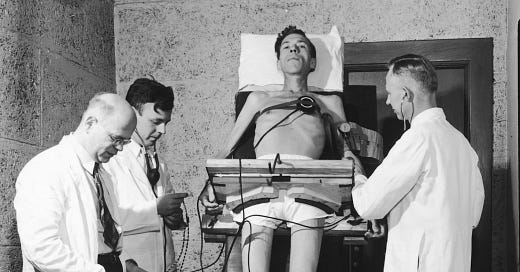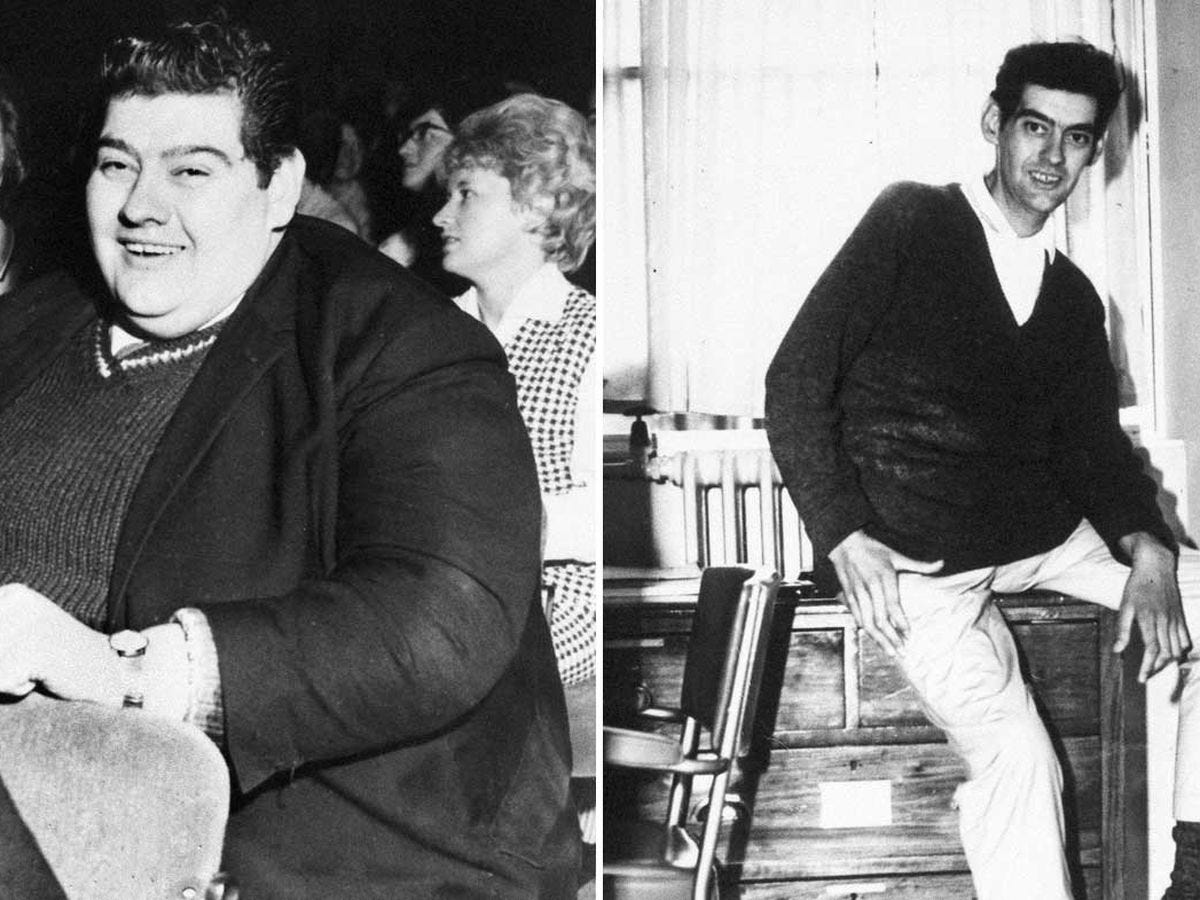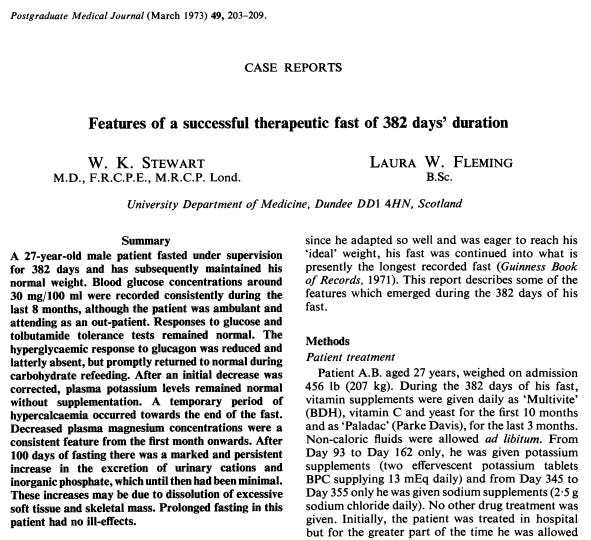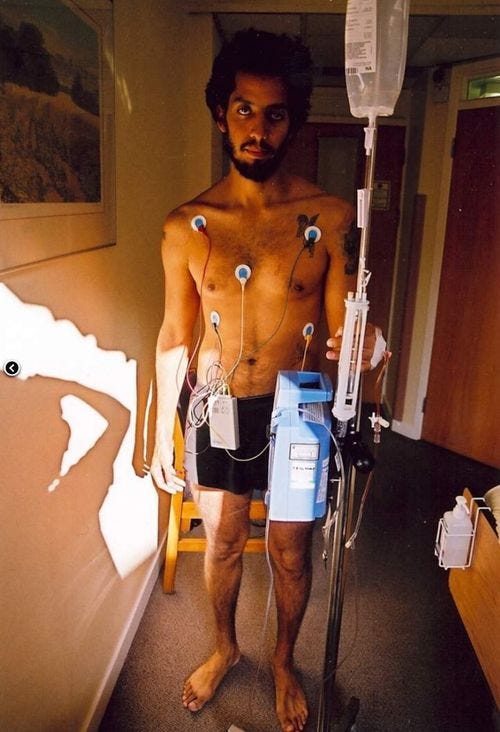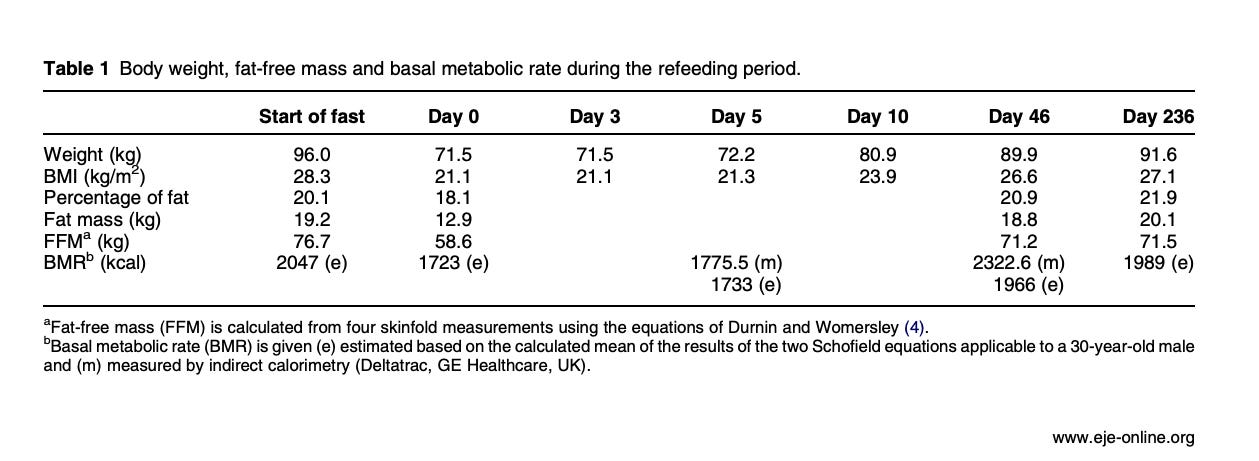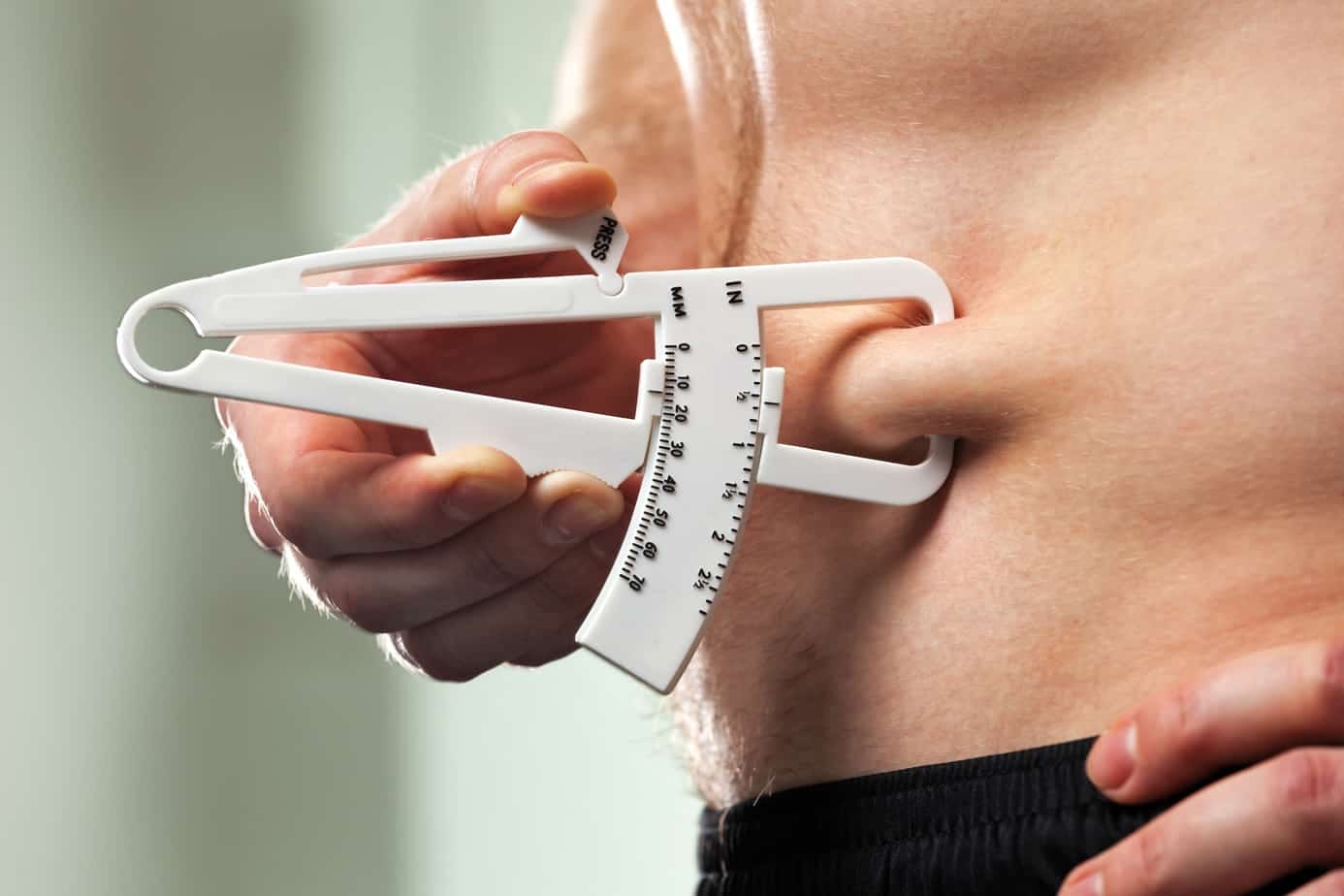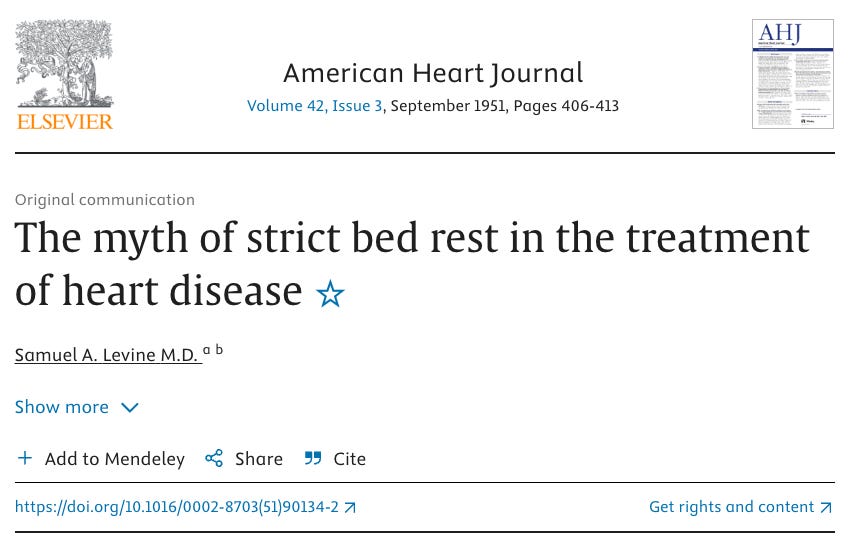To understand whether fasting eats up your muscle, we need to look at the stories of two different men. David Blaine fasted for 44 days and Angus Barbieri fasted for 392 days.
If Blaine lost muscle at the same rate Barbieri did, he would’ve died. So what made the difference?
Angus’s fast was medically supervised and a case report was published on it. Angus lost a total of 276lbs (175kg) over his year-long fast. While the authors of his case report did guess that some of the compounds presenting in his urine might suggest he lost some muscle, they concluded that “prolonged fasting in this patient had no ill-effects.”
Over his 44 day fast, David Blaine lost 55lbs (25kg) and lost much more fat-free mass, which includes muscle, (39 lbs / 18.1kg) than he did fat mass (13.8lbs / 6.3kg). Fat-free mass includes water, organs, bone, and muscle content, so not all of that was muscle. Also this was estimated with skinfold calipers so it’s not the most accurate measurement. However, he definitely lost a ton of muscle.
Here’s the thing: If Angus lost muscle at the rate that David Blaine did, he would be dead. While there wasn’t specific information on Barbieri’s change in fat-free mass or muscle mass, we can guess that Angus’s muscle fared pretty well considering he had no health complications.
Further, you’ve probably heard warnings against losing weight too fast. I’m not sure what that is originally based on, but there is evidence that losing weight quickly will be worse for muscle than if you lose weight gradually.
So what I’m interested in specifically is muscle-loss due to prolonged fasting. Obviously at some point, you are going to have to tap into your muscle for energy. Fasting has various benefits, but death from starvation is of course a thing. But, let’s take a closer look at something like a 10-day fast.
Why David Blaine destroyed his muscle
First off, David Blaine’s fast was a big stunt. He was suspended in a transparent box above London, making it near impossible for him to fast. Being unable to walk around or move much has been well known to rapidly atrophy your muscle for several decades.
In one of Jeff Nippard’s videos, he gives the example of Matt, a client of a friend of his. Matt was hospitalized for 2 months from a Crohn’s disease flare up. He was unable to exercise during that time and he lost 35 lbs and much of his gains.
In fact, a bed rest had 10 men lose an average of 3lbs (1.4kgs) of lean mass in just a week.
In the early 1900’s it was arbitrarily decided that someone who just had a heart attack should adhere to strict bed rest for weeks. When I say arbitrarily, I mean they literally just plucked that idea out of thin air and prescribed weeks of bed rest with no evidence that that would actually help. The logic was that the heart needed rest and should not be stressed in any way. Well, they eventually found that this excessive rest would atrophy the heart.
Tim Ferriss has reported in Tools of Titans that he lost 12 lbs of muscle mass doing a 7-day fast. The fast was clinically supervised and they specifically prevented him from exercising. However, when he did another 10-day fast that included plenty of walking, he apparently didn’t lose any muscle at all. Peter Attia has reported that week-long water-only fasts where he engages in “daily resistance exercise and 1-2 zone-2 rides,” he doesn’t seem to lose any muscle mass.
Fasting or not, you’re always “breaking down” your muscle
What you need to know about muscle is that we are always experiencing muscle protein breakdown. Your muscles are always “breaking down.” However, healthy people are normally matching that with muscle protein synthesis. To be successful in putting on muscle, all you have to do is make sure your muscle protein synthesis is higher than your muscle protein breakdown.

There are two ways to induce muscle protein synthesis:
(1) Eat protein, notably the amino acid leucine.
(2) Stimulate the muscles with exercise, especially resistance training.
Since eating protein is off the table, the importance of getting some exercise during fasting is very apparent. This highlights just how incredibly stupid the clinic that supervised Tim Ferriss’s 7-day fast was. “Use it or lose it” becomes “use it or really lose it” when you’re fasting.
How the body preserves your muscle during fasting
To benefit your muscles, you can also just inhibit muscle protein breakdown.
Keep reading with a 7-day free trial
Subscribe to Joseph Everett’s WIL Newsletter to keep reading this post and get 7 days of free access to the full post archives.

